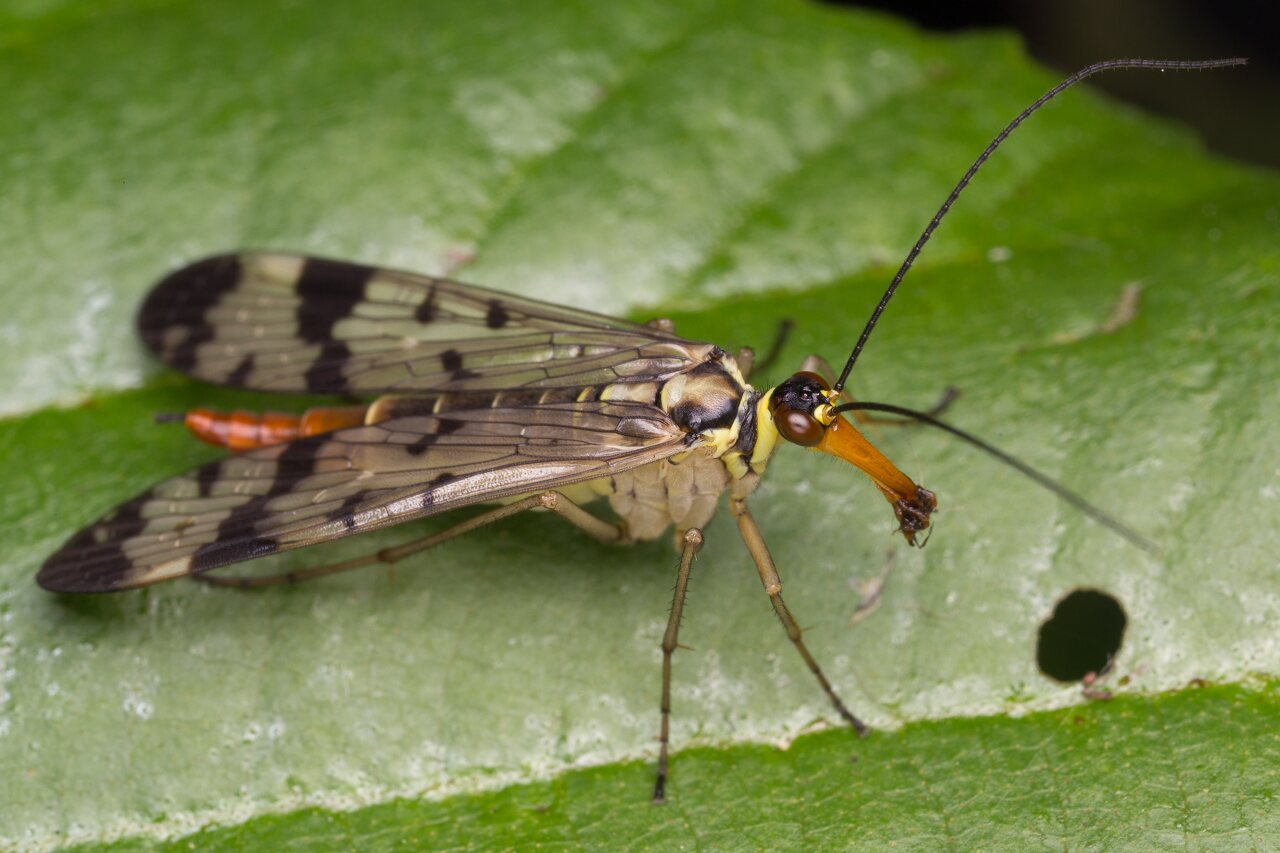
Panorpa communis · paprastoji skorpionmusė
- common European scorpionfly
- Gemeine Skorpionsfliege
- paprastoji skorpionmusė
- parastā skarpijmuša
- wojsiłka pospolita
https://en.wikipedia.org/wiki/Panorpa_communis This species is native to Europe and Northern Asia. The adult is seen between May and September. They eat dead insects and sometimes eat live aphids. Although fully winged, the adults rarely fly very far and spend much of their time crawling on vegetation in damp, shaded places near water and along hedgerows. Panorpa communis is a univoltine species. Eggs are laid in soil annually and the larvae both scavenge and pupate there.
Panorpa communis can reach a body length of about 30 mm. The common scorpionfly has a black and yellow body, with a reddish head and tail. The male has a pair of claspers at the end of its tail (for holding the female during mating), giving it a scorpion-like appearance, although it is not a stinger.
The adult insect has a wingspan of about 35 mm, with wings that are mostly clear, but have many dark spots or patches. Its head, mounted with large eyes, is drawn into a prominent, downward pointing beak, which opens at the tip of its head. Females are longer, heavier, and have longer legs than males.
In the female, the eighth abdominal segment is the shortest, almost twice shorter than the seventh; the sixth is narrowed towards the back. The larva resembles a caterpillar and grows up to 20 mm long. It has three pairs of thoracic legs and eight pairs of prolegs.
Males release pheromones and offer nuptial gifts to females in the form of saliva secretions and nuptial prey (usually dead arthropods). Before offering the nuptial gifts, the male and female, perform ritualized premating behavior, which includes slow wing movements, accompanied by brief sequences of rapid vibrations from their abdomen.
Išskleistų sparnų dydis – 24-34 mm. Kūnas tamsiai rudas, pilvelio apačia gelva. Patinų pilvelio galas rausvas. Priekinių sparnų viršūnėse ir kitose vietose esančios dėmės yra juodai rudos ir sudaro skersinę juostą. Rūšis aptinkama visur. Grobuoniška.
‥
0 comments
Add a comment